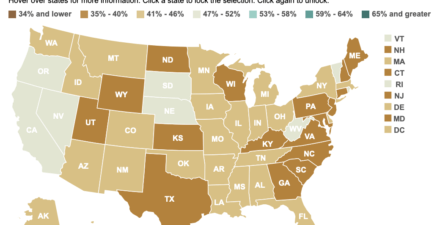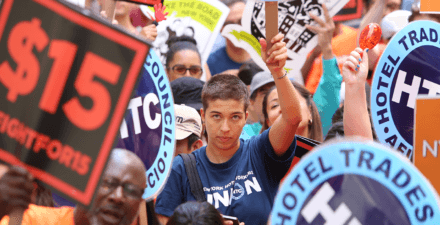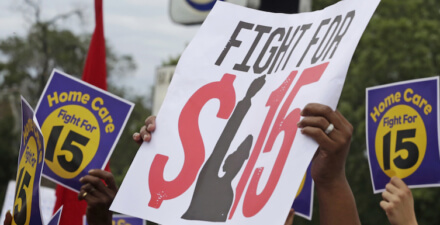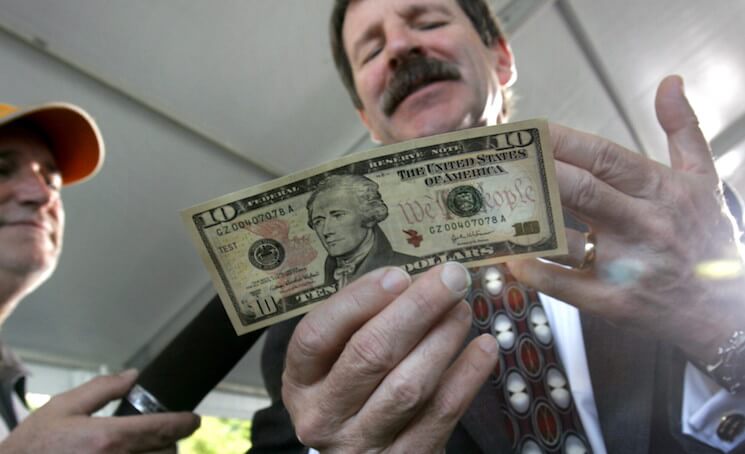Factsheet: Minimum wage increases are good for U.S. workers and the U.S. economy
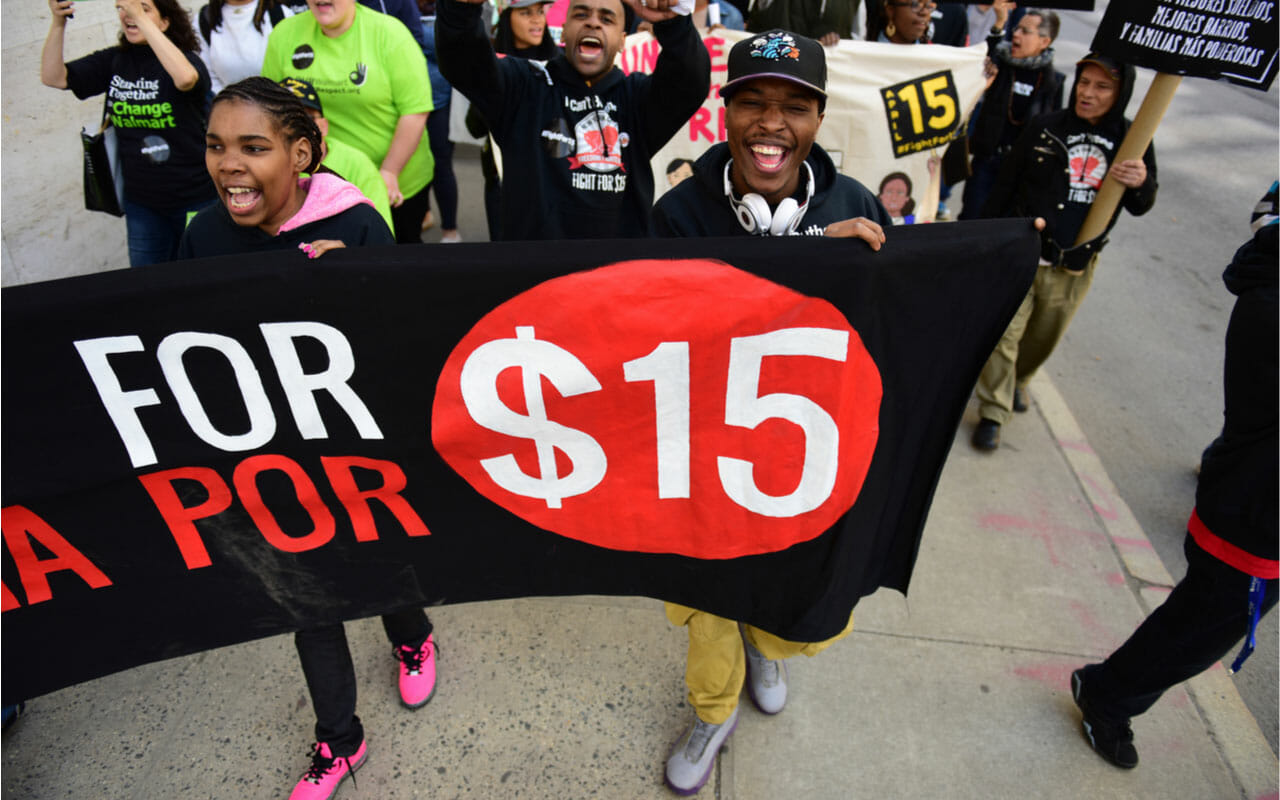
Overview
The research is clear: Minimum wage increases are good for U.S. workers and the U.S. economy. This overarching fact is important to bear in mind when reading the recently released Congressional Budget Office analysis on the expected impacts of raising the minimum wage.
This factsheet contextualizes the CBO report in light of cutting-edge econometric research on minimum wage increases from economists and other scholars in Equitable Growth’s network. The research papers cited in this factsheet use sophisticated research techniques that show past assumptions about the minimum wage are not correct. These newer research techniques hone in on causality by drawing on improved empirical methodologies, computing power, and previously unavailable detailed administrative data.
Download FileMinimum wage increases are good for U.S. workers and the U.S. economy
Distribution and welfare
- Minimum wage increases significantly lower the poverty rate, increase earnings for low-wage workers, and decrease public expenditures on welfare programs.1
- The earnings boost for low-wage workers from higher minimum wages extends beyond the immediate effect of the legal change and instead grows in magnitude for several years thereafter.2
- A 10 percent increase in the minimum wage increases wages by 1.3 percent to 2.5 percent for workers in the food and beverage industry, according to a study of six cities with especially high minimum wages.3
- Minimum wage increases can have some of the largest benefits for disadvantaged ethnic groups. The expansion of the federal minimum wage to cover additional industries in the 1966 Federal Labor Standards Act explained 20 percent of the reduction in the black-white wage gap during the Civil Rights era.4 And the poverty rate for black and Hispanic families would be around 20 percent lower had the minimum wage remained at its 1968 inflation-adjusted level and not been allowed to languish and atrophy for years.5
Jobs and employment
- A comprehensive study of 128 prominent state-level minimum wage changes between 1979 and 2013 finds no evidence of job losses as a result of minimum wage increases, while confirming the positive earnings effects for low-wage workers as a result of these reforms.6
- Recent minimum wage increases in six cities did not cause job losses and in some cases were associated with job increases.7
- Similarly, when the federal minimum wage was expanded in 1966 to cover additional industries, there were no significant disemployment effects for black workers in their study on the federal minimum wage increase in 1966.8
- Having a lower minimum wage has not created more jobs for workers in the United States compared to other countries with similar economies such as France and Australia, which have higher minimum wages.9
- In any case, “no job losses” is the wrong standard for evaluating whether the minimum wage is at an appropriate level. Instead, policymakers should focus on the overall welfare of low-income families and establish a “minimum living wage,” given research showing large potential benefits from a higher minimum wage.10
The importance of the latest research methodology
The empirical revolution evident in the research papers cited in this factsheet allow policymakers and economists alike to move past guesses about how individuals or businesses might react to policy changes involving the minimum wage to observe how they actually behave. Three key studies by leading scholars on the minimum wage that exemplify this new data-driven analysis are:
- An analysis that leverages data from 1979 to 2014 with several empirical strategies to confirm that minimum wage increases have minimal employment effects, while illustrating the key methodological flaws in economics papers alleging large employment losses11
- A study showing that recent research on the supposed ill-effects of a recent minimum wage increase in Seattle is largely uninformative for policymaking, as it relies on many of the same methodological flaws as previous studies12
- An expansive study that uses several cutting-edge econometric methods on the most comprehensive dataset in the minimum wage research literature to substantiate large income increases and negligible employment costs in more than 100 state-level minimum wage increases in recent decades13
Conclusion
While some states and cities have increased their minimum wages in recent years, the current federal minimum wage has been stuck at $7.25 since 2009. Recent breakthroughs in economic methodology and analysis prove that raising the federal minimum wage would decrease poverty and increase earnings for workers, especially for low-wage workers and people of color. Yet the recent analysis from the Congressional Budget Office unjustifiably discounts the new, more empirically rigorous research, leading it to underestimate the benefits and overestimate the harms of raising the minimum wage. As federal legislators consider the Raise the Wage Act, a bill that would gradually increase the federal minimum wage to $15 an hour over the next five years, it is critical that they have access to the most cutting-edge economic evidence on which to base their decision.
About the authors
Kate Bahn is the director of Labor Market Policy and an economist at the Washington Center for Equitable Growth. Will McGrew is a research assistant at the Washington Center for Equitable Growth.
End Notes
1. Arindrajit Dube, “Minimum wages and the distribution of family incomes.” Working Paper (Washington Center for Equitable Growth, 2017), available at https://equitablegrowth.org/working-papers/minimum-wages-and-family-incomes/.
2. Kevin Rinz and John Voorheis, “The distributional effects of minimum wages: Evidence from linked survey and administrative data.” Working Paper (Washington Center for Equitable Growth, 2018), available at https://equitablegrowth.org/working-papers/distributional-minimum-wage/.
3. Sylvia A. Allegretto and others, “The New Wave of Local Minimum Wage Policies: Evidence from Six Cities” (Berkeley, CA: Institute for Research on Labor and Employment, 2018), available at https://irle.berkeley.edu/the-new-wave-of-local-minimum-wage-policies-evidence-from-six-cities/.
4. Ellora Derenoncourt and Claire Montialoux, “Minimum Wages and Racial Inequality” (2018), available at https://scholar.harvard.edu/files/elloraderenoncourt/files/montialoux_jmp_2018.pdf.
5. Ben Zipperer, “The erosion of the federal minimum wage has increased poverty, especially for black and Hispanic families” (Washington: Economic Policy Institute, 2018), available at https://www.epi.org/publication/the-erosion-of-the-federal-minimum-wage-has-increased-poverty-especially-for-black-and-hispanic-families/.
6. Doruk Cengiz and others, “The Effect of Minimum Wages on Low-Wage Jobs,” The Quarterly Journal of Economics (2019), available at https://academic.oup.com/qje/advance-article-abstract/doi/10.1093/qje/qjz014/5484905?redirectedFrom=fulltext.
7. Allegretto and others, “The New Wave of Local Minimum Wage Policies: Evidence from Six Cities.”
8. Derenoncourt and Montialoux, “Minimum Wages and Racial Inequality.”
9. David Howell, “The employment effects of a much higher U.S. federal minimum wage: Lessons from other rich countries” (Washington: Washington Center for Equitable Growth, 2016), available at https://equitablegrowth.org/the-employment-effects-of-a-much-higher-u-s-federal-minimum-wage-lessons-from-other-rich-countries/.
10. David Howell, Kea Fiedler, and Stephanie Luce, “What’s the right minimum wage? Reframing the debate from ‘no job loss’ to a ‘minimum living wage.’” Working Paper (Washington Center for Equitable Growth, 2016), available at https://equitablegrowth.org/working-papers/whats-right-minimum-wage-reframing-debate-no-job-loss-minimum-living-wage/.
11. Sylvia A. Allegretto and others, “Credible Research Designs for Minimum Wage Studies: A Response to Neumark, Salas, and Wascher,” ILR Review 70 (3) (2017): 559–592, available at https://journals.sagepub.com/doi/abs/10.1177/0019793917692788.
12. Ben Zipperer, “Six reasons not to put too much weight on the new study of Seattle’s minimum wage,” Working Economics Blog, October 22, 2018, available at https://www.epi.org/blog/six-reasons-not-to-put-too-much-weight-on-the-new-study-of-seattles-minimum-wage/ (last accessed June 24, 2019).
13. Cengiz and others, 2019.

